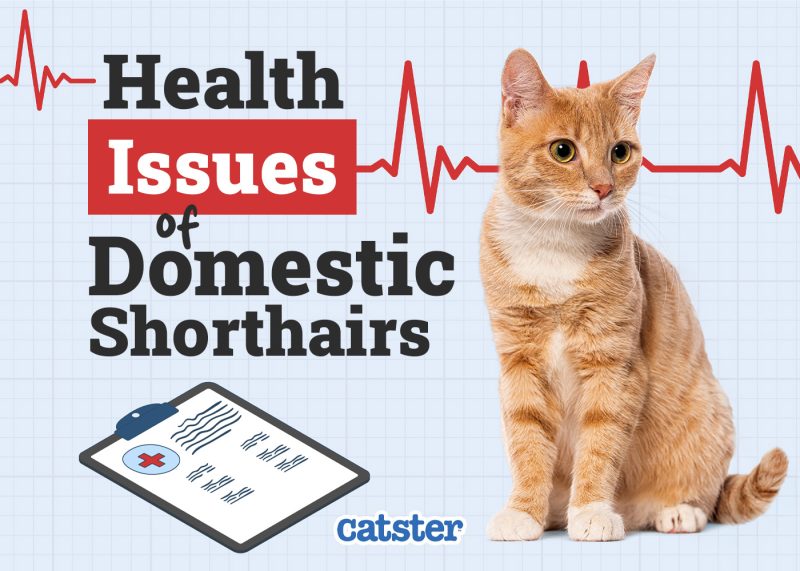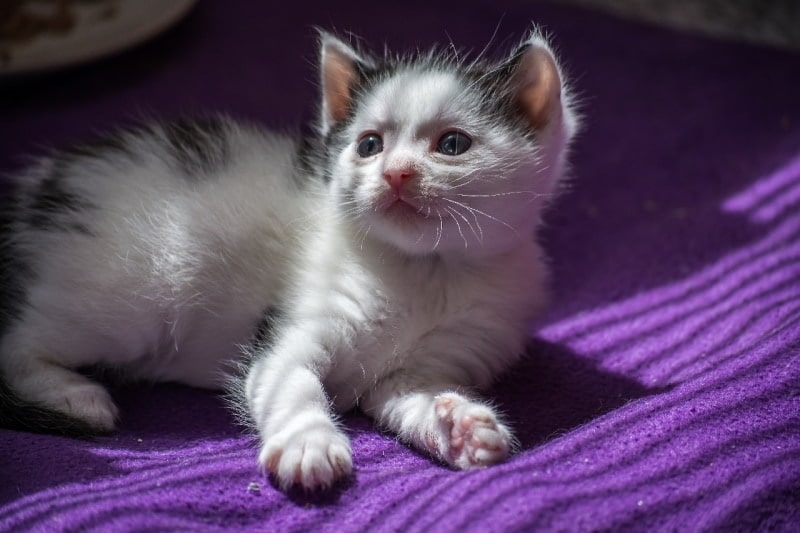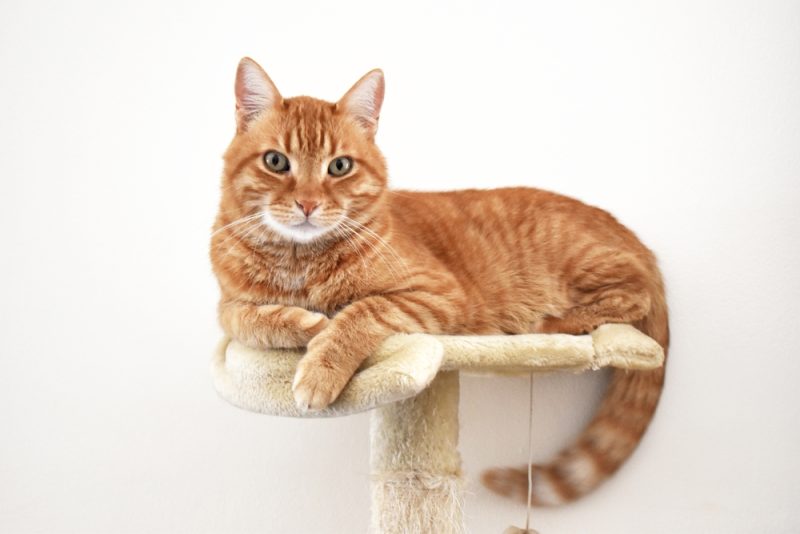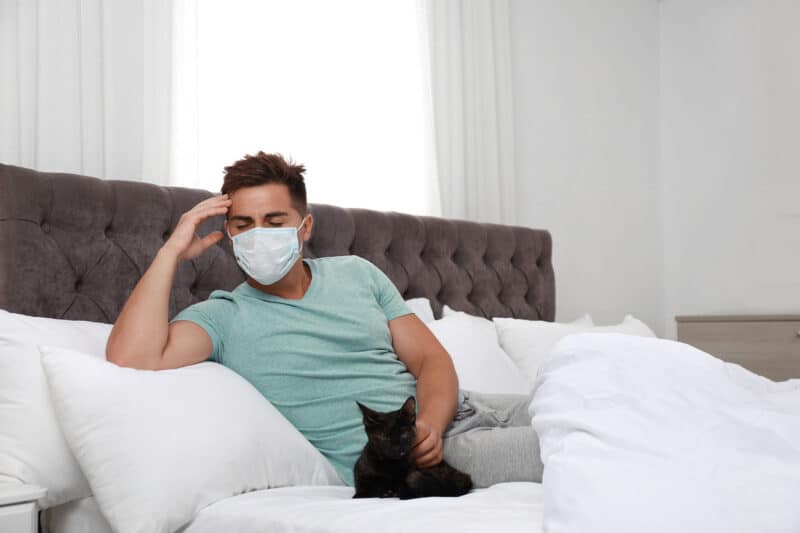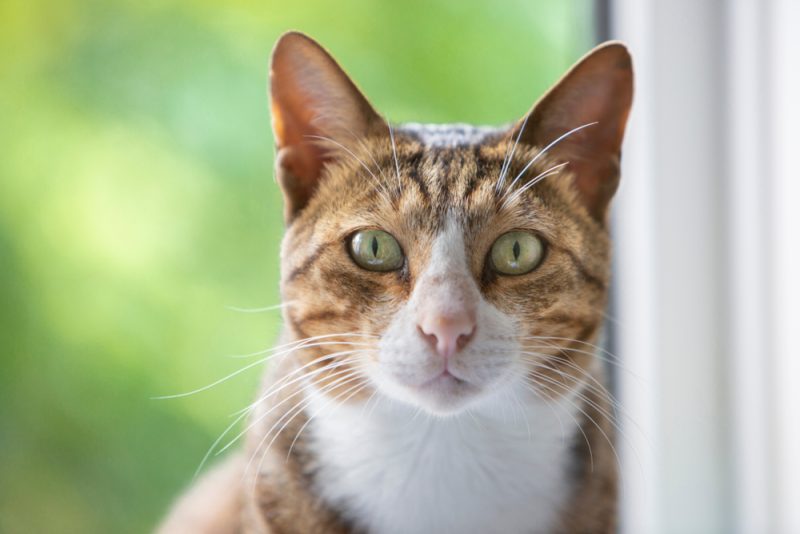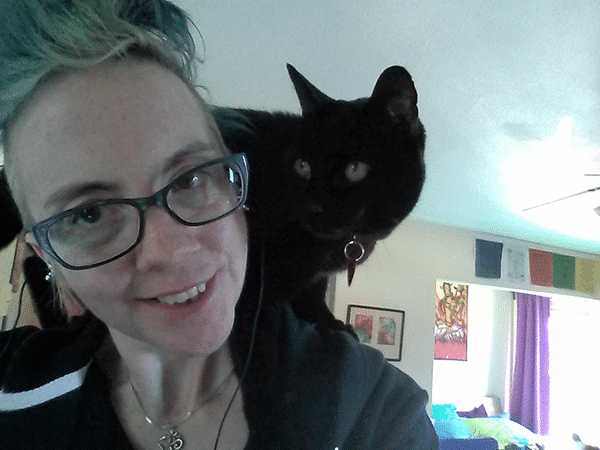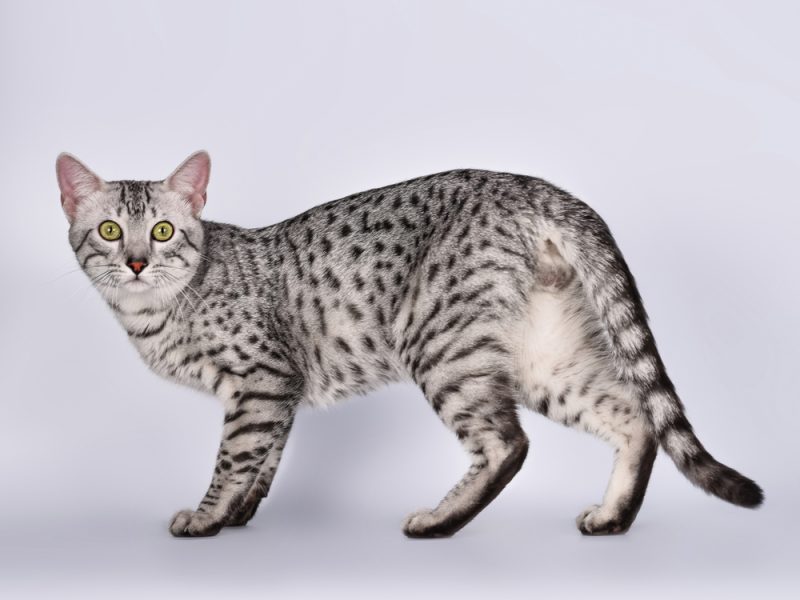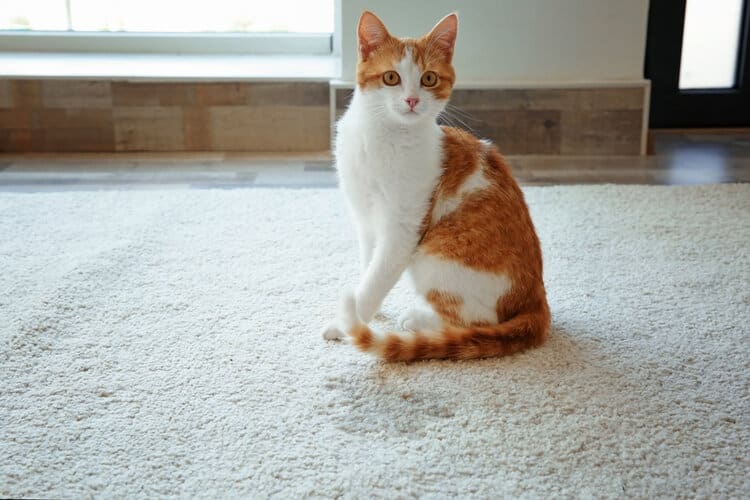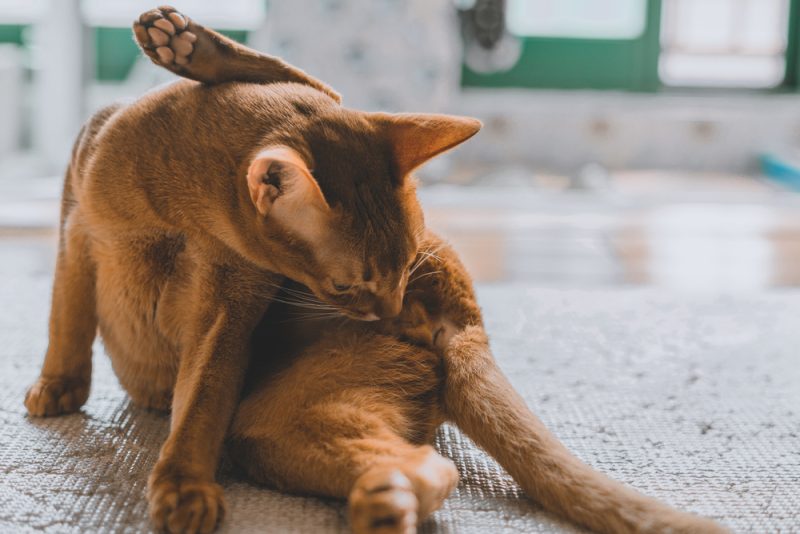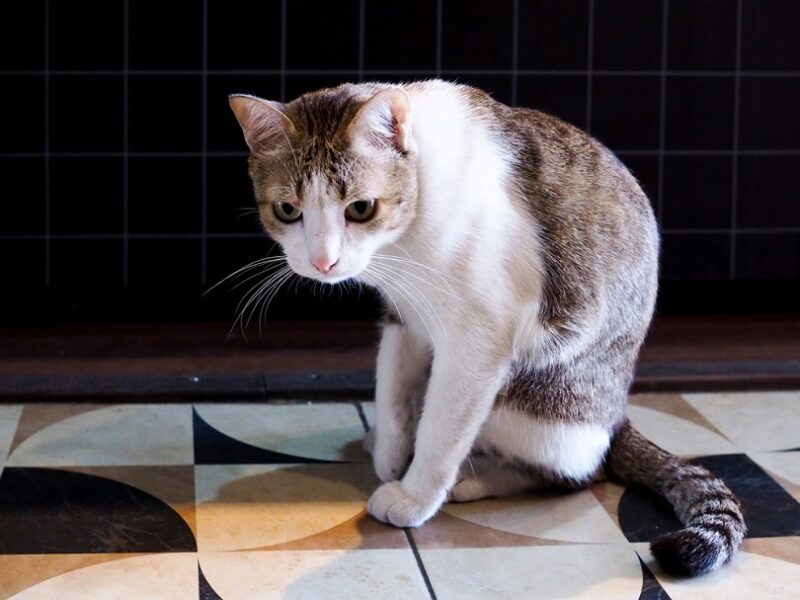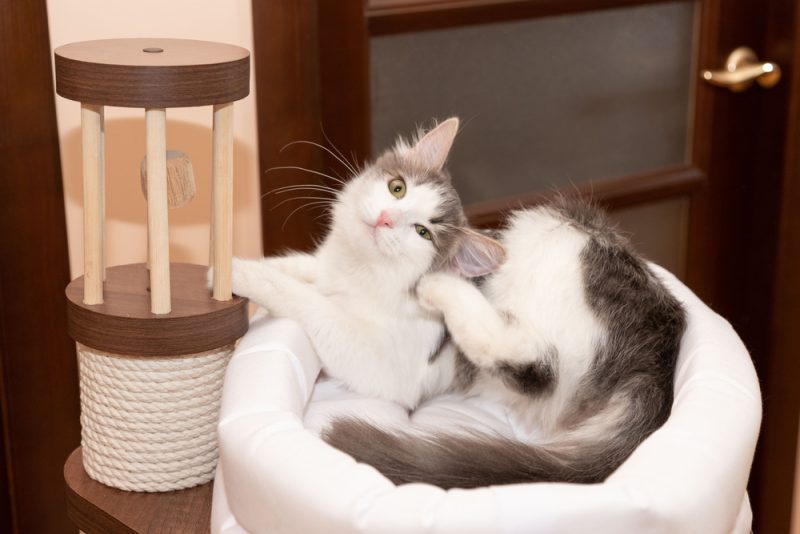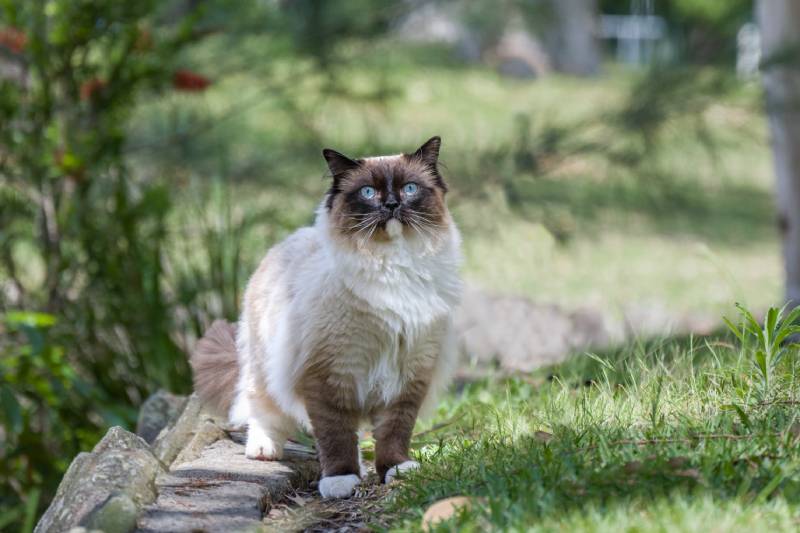Domestic shorthair cats are the perfect pet for people who want a small, easy-to-care-for animal that doesn’t require a lot of exercise. These cats have a sturdy build and average weight of around 6 to 8 pounds, making them the perfect size for households with kids or small dogs. They come in a variety of colors and patterns, making them attractive additions to any home.
Domestic shorthairs are a popular choice as pets, but they come with their own set of health problems. These cats can suffer from a number of conditions, most of which are common to other cats and some that are specific to domestic shorthairs.
While there is no one answer to preventing all of these problems, taking care of your cat’s diet and lifestyle can go a long way in helping keep them healthy. Shorthair cats, like all cats, require routine veterinary care to maintain their health.

The 15 Domestic Shorthair Cat Health Problems
1. Inflammatory Bowel Disease (IBD)
Inflammatory bowel disease IBD in cats can manifest as vomiting, diarrhea, loose stools, and weight loss. IBD can be diagnosed with intestinal biopsies or advanced imaging such as abdominal ultrasound. Treatment may include steroids and switching to a bland gastrointestinal diet.
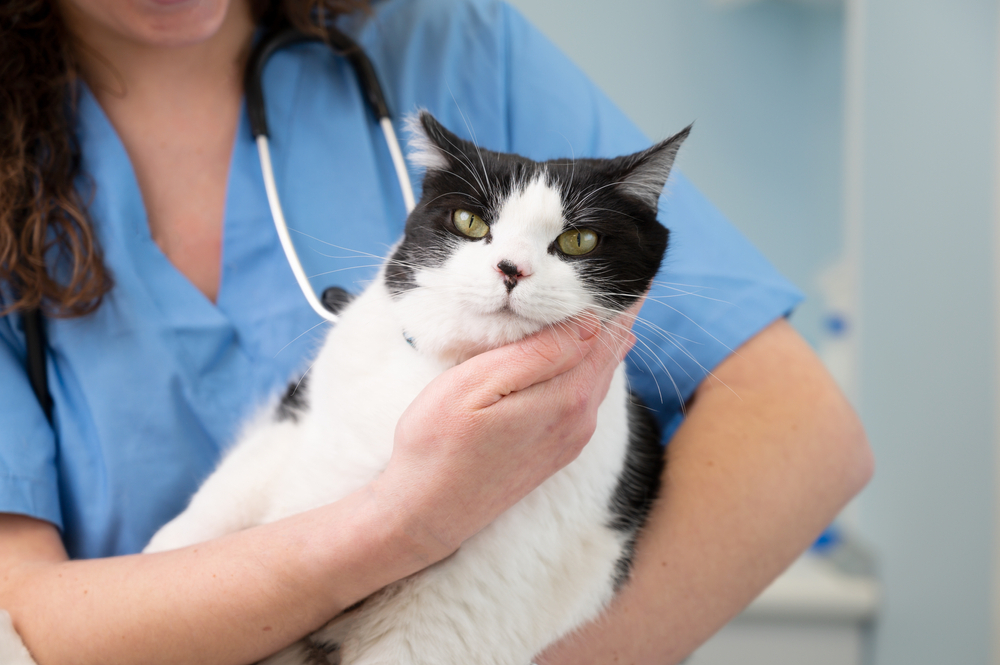
2. Hypertrophic Cardiomyopathy
Hypertrophic cardiomyopathy is a heart disease that is caused by an abnormal thickening of the heart muscle. This thickening can prevent the heart from filling with blood properly and can lead to heart failure or clot formation. Domestic shorthair cats are particularly prone to this disease, and it often causes death in these cats.
Signs of hypertrophic cardiomyopathy include shortness of breath, rapid breathing, and coughing. Treatment for the disease includes medication and, in some cases, surgery.
3. Obesity
A domestic shorthair cat is at risk for obesity if its diet is not properly monitored. Overfeeding and giving your cat access to an excessive number of snacks can lead to obesity. Cats that are overweight are at an increased risk of developing diabetes, heart disease, and joint problems. A diet that is high in protein and low in carbohydrates can help reduce the likelihood of a cat becoming obese. We suggest speaking to a vet for advice on the best diet for your cat if you are concerned about their weight.
If you need to speak with a vet but can't get to one, head over to PangoVet. It's an online service where you can talk to a vet online and get the advice you need for your pet — all at an affordable price!
4. Dental Disease
Dental disease in domestic shorthair cats is most commonly caused by an accumulation of plaque and tartar on the teeth. This can lead to inflammation of the gums (gingivitis) and/or infection of the tooth roots (endodontic disease). Dental disease can also cause pain, difficulty eating, and bad breath.
Treatment may include dental cleaning and extractions under anesthesia, antibiotics if an infection is present, and/or oral medications to reduce inflammation and pain.
5. Infections Preventable by Vaccines
A domestic shorthair cat is at risk for a vaccine-preventable infection if it is not vaccinated. The most common infections in unvaccinated cats are feline herpesvirus (FHV), calicivirus (FCV), and feline panleukopenia virus (FPV). These viruses can cause severe respiratory disease, gastrointestinal disease, and neurologic disease, respectively.
Your cat must be vaccinated against the infection to help protect it from becoming ill.
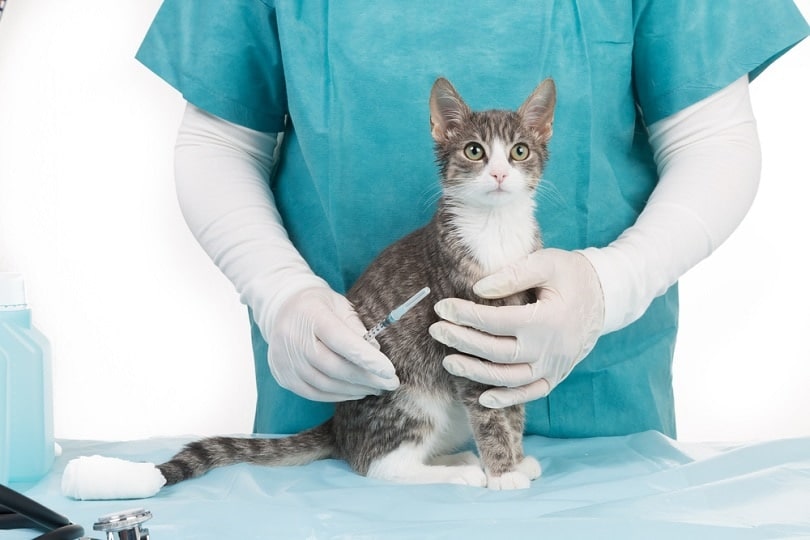
6. Parasites
The most common parasites of domestic shorthaired cats are roundworms, tapeworms, and fleas. All of these parasites can cause serious health problems in cats if not treated. Roundworms can cause intestinal blockages and death, tapeworms can cause weight loss and malnutrition, and fleas can cause skin infections and anemia.
Cats should be routinely dewormed and given monthly flea preventatives to protect them from these parasites.
7. Blood Clots in the Arteries
Arterial thromboembolism is a condition that can affect domestic shorthair cats. The condition is caused by a blood clot that becomes lodged in an artery, preventing blood from flowing to the rest of the body. This can lead to several serious health problems, including tissue damage, heart attack, stroke, and even death.
Arterial thromboembolism can be treated with medications that dissolve the clot or prevent it from forming.

8. Feline Lower Urinary Tract Diseases
The term “feline lower urinary tract disease” (FLUTD) refers to a variety of disorders that can affect a cat’s urinary system. These diseases can cause inflammation and irritation in the bladder and urethra, leading to signs such as straining to urinate, blood in the urine, and increased frequency of urination.
FLUTD can be caused by a number of factors, including infection, crystals or stones in the urinary tract, and tumors. Domestic shorthair cats are possibly more prone to developing feline lower urinary tract diseases (FLUTD) than other breeds of cats.
9. Renal Failure
Renal failure (RF) is a common and eventually fatal condition in cats. The kidneys are responsible for filtering toxins and waste products from the blood and excreting them in the urine. When the kidneys fail, these toxins can build up in the body, leading to a number of serious health problems.
Domestic shorthair cats are thought to possibly be more prone to RF, likely due to their genes. Renal failure in domestic shorthair cats is often the result of another underlying disease process, such as infection, inflammation, or cancer. When the kidneys fail, they can no longer remove wastes and toxins from the blood, which can cause a variety of serious health problems.
Treatment for renal failure depends on the underlying cause and may include medications, diet changes, and/or dialysis.
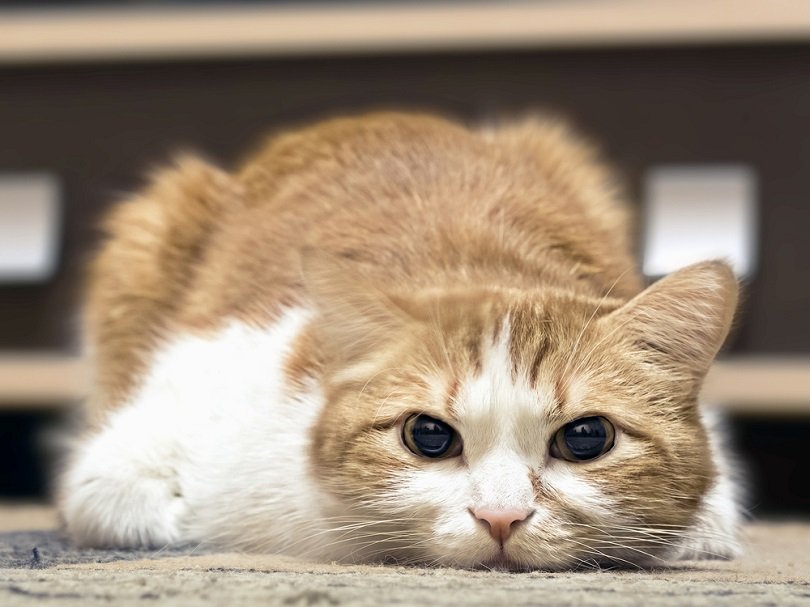
10. Hyperthyroidism
Hyperthyroidism is a condition that affects cats and is caused by an overactive thyroid gland. This condition results in an increase in the cat’s metabolism, which can cause a wide range of signs, including weight loss, increased appetite, increased heart rate, hyperactivity, and restlessness
Treatment for hyperthyroidism usually involves medications to control the thyroid hormone levels, as well as dietary changes and/or surgery to remove the overactive thyroid gland. Domestic shorthair cats may be more prone to hyperthyroidism, and early diagnosis and treatment are essential for the best possible outcome.
11. Diabetes Mellitus
Diabetes mellitus is a chronic disease in cats that is caused by a deficiency in the hormone insulin. Without insulin, the body cannot use glucose (sugar) for energy, and the blood sugar level becomes too high. A high blood sugar level can damage many parts of the body, including the eyes, kidneys, nerves, and blood vessels.
A domestic shorthair cat that has diabetes will have an increased blood sugar level. This is a result of the body not being able to produce enough insulin or the body not being able to use the insulin properly. When the blood sugar level is high, the cat will experience symptoms such as excessive thirst and urination, weight loss, and poor coat condition.
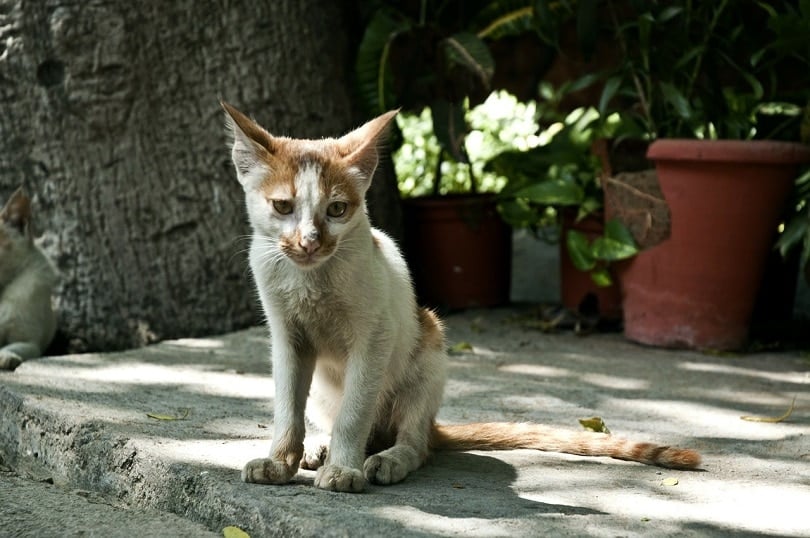
12. Atopy
Domestic shorthair cats are possibly more prone to atopy, which is a hypersensitivity disorder of the skin. This means that they are more likely to suffer from allergies and other skin problems. Signs of atopy can include scratching, licking, and chewing the skin, as well as hair loss.
Treatment for atopy usually includes medications such as antibiotics to clear up secondary infections, antihistamines, steroids, anti-inflammatory medications, or other topical creams or ointments for the skin, as well as environmental changes like reducing exposure to allergens.
13. Food allergy
Protein sources are the most common cause of food allergies in cats. Proteins such as fish, beef, and chicken are common offenders. Signs of food allergies may include vomiting, diarrhea, excessive scratching, and skin infections. Food allergies can be treated by switching your cat to a novel protein diet. Food allergies are diagnosed with a strict elimination diet food trial for at least 8–12 weeks.
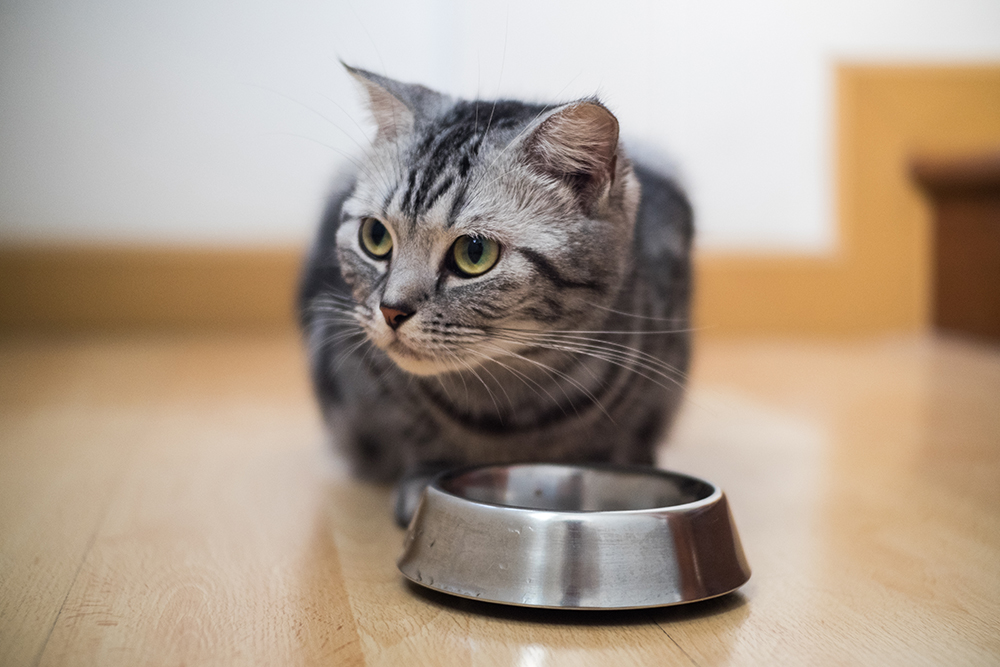
14. Osteoarthritis
Osteoarthritis is more likely to affect older cats. OA is a chronic degenerative disease resulting in bony changes that can cause pain and discomfort for your cat. Signs of osteoarthritis may include lameness, limping, no longer jumping up on surfaces, or not using the litter box. Your veterinarian can use X-rays to diagnose OA and prescribe appropriate medications to keep your cat comfortable.
15. Pancreatitis
Pancreatitis is inflammation of the pancreas and, subsequently, intestines, usually due to your cat consuming a meal or food that is very high in fats. Some cats will only require some medications from the vet, while others may need to be hospitalized.
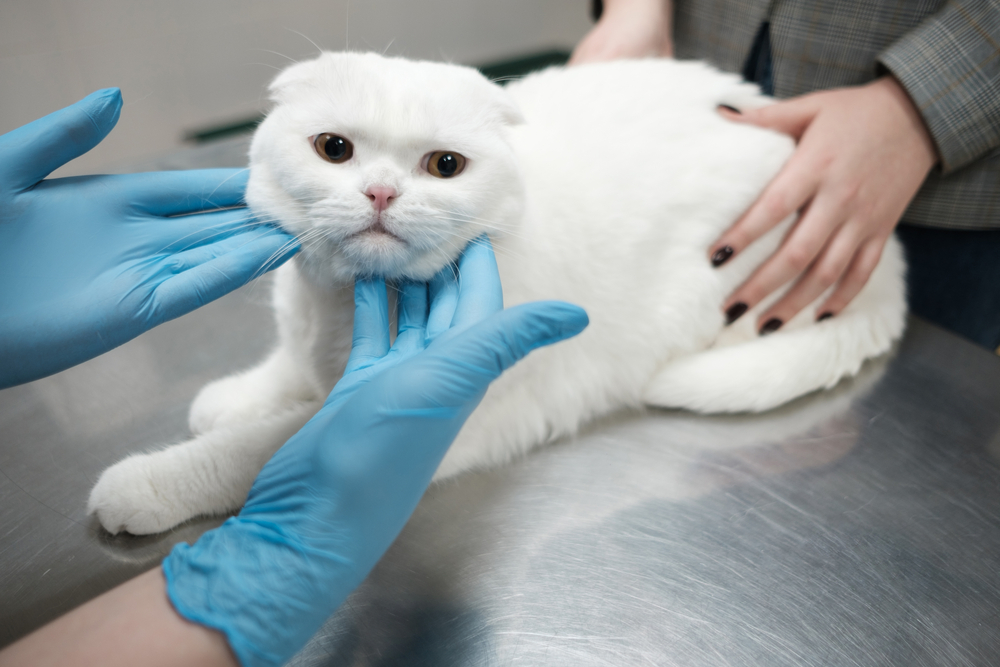

Conclusion
In conclusion, domestic shorthair cats are susceptible to a number of health problems. These health problems can range from minor to life-threatening. It is important that cat owners are aware of these health problems and take steps to protect their cats from them. By understanding these conditions and taking measures to prevent or treat them, you can help keep your precious cat healthy and over a long and happy life.
Featured Image Credit: Natata, Shutterstock
